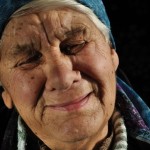Age-Related-Eye-Problems
Help Your Loved Ones Manage Age-Related Macular Degeneration and Age-Related-Eye-Problems
When was the last time you or your loved ones had their vision checked for age-related-eye-problems? New survey results reveal that nearly 75 percent of Americans still don’t know age-related macular degeneration (AMD) is the leading cause of legal blindness age-related-eye-problems in older adults. As the Boomer population experience and age-related-eye-problems and their parents age, the incidence of AMD will certainly grow. In fact, recent projections estimate that in the United States the number of individuals with age-related macular degeneration (AMD) will reach 20 million in 2020.
The survey also found that 43% of Americans age 65 years or older (equivalent to nearly 20 million Americans) have or know someone with AMD and find themselves assisting those individuals frequently. Given that spouses or adult children provide 72 percent of that care, will you know what to do if you or a loved one develops AMD?
What is AMD and Age-related-eye-problems?
AMD is a progressive disease that damages the macula, the area of the eye responsible for “straight-ahead” vision. AMD symptoms and age-related-eye-problems are subtle at first. For example, it may start with straight lines appearing bent (like a telephone pole now looking crooked). But over time, central vision becomes blurred, distorted or, in some cases, completely blocked. While people with AMD maintain their peripheral vision, this vision is too blurry to make up for lost central vision. There are two kinds of AMD: Dry and Wet. Dry AMD progresses more slowly and is more common. Diagnosed in only 10 percent of all AMD patients, wet AMD worsens more quickly because it is caused by leaking blood vessels that damage the macula.
In its most advanced form, End-stage AMD, patients will have severe and permanent central vision “blind spots” in both eyes. People living with End-stage AMD find it difficult or impossible to do everyday things, like recognize friends’ and loved ones’ faces, read books or magazines, watch TV or complete tasks that require detailed vision, like cooking or sewing. The condition is also associated with increased stress and depression as vision diminishes.
Prevention, Treatment and Assistance
While it is impossible to completely prevent the development of AMD and age-related-eye-problems older adults can reduce their risk by exercising regularly, avoiding smoking, maintaining normal blood pressure and cholesterol levels, and eating a healthy diet with green leafy vegetables and fish.
There is no cure for AMD, but it can be managed. An ophthalmologist may recommend treatments ranging from vitamins, drug or laser therapy, or, even a pea-sized FDA-approved surgical implant for those patients who have progressed to end-stage AMD.
5 Tips To Help Your Loved One Manage AMD
- Speak up – Make a list of questions for your doctor about your specific diagnosis and available treatments
- Adapt – A healthy diet and lifestyle can help reduce the risk of AMD progression and simple changes like adjusting lighting and investing in an e-reader (that allows for larger print) can make daily life easier
- Discuss driving – Are you or your loved ones safe behind the wheel? Have a serious conversation with your family and physician about whether driving is safe for you and other people on the road
- Research options – Learn more about the latest treatments, such as the FDA approved telescope implant for those with the severest form of AMD.
- Find support – There are local low vision resource centers, such as Lions Club International, and national AMD awareness groups across the country and online, such as BrightFocus Foundation, Macular Degeneration Foundation and the National Eye Institute. AMDAffectsMe.com is another resource that provides education about age-related macular degeneration and treatment options.
Boomers have the opportunity to help their loved ones adjust if their central vision begins to deteriorate because of AMD and age-related-eye-problems. Be mindful that your parent, for example, may feel like their independence is impacted if they need to ask for help signing checks, making selections at the grocery store or even recognizing grandchildren. Be aware that adults with AMD are at higher risk for depression as their vision diminishes, which is why it’s important to develop an individualized management plan that incorporates a range of treatment and caregiving strategies.
Category: Articles





































Comments (1)
Trackback URL | Comments RSS Feed
Sites That Link to this Post